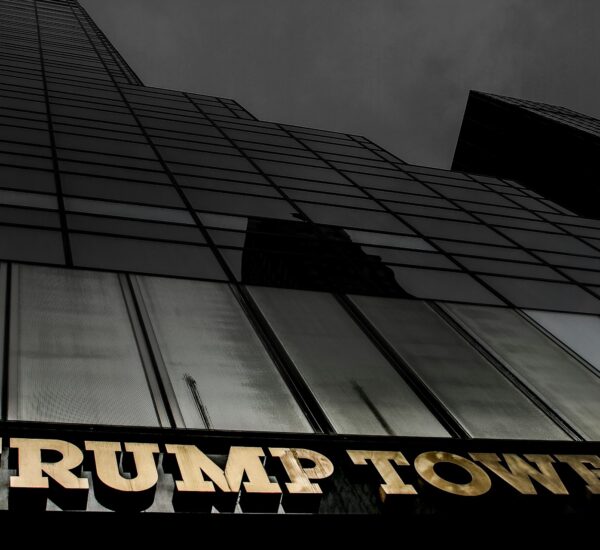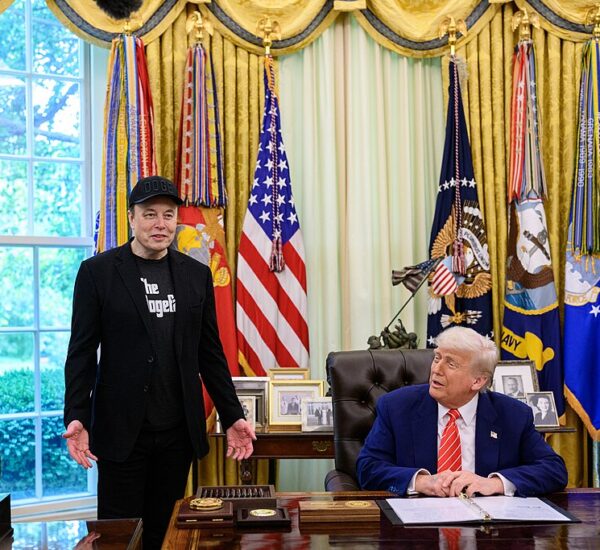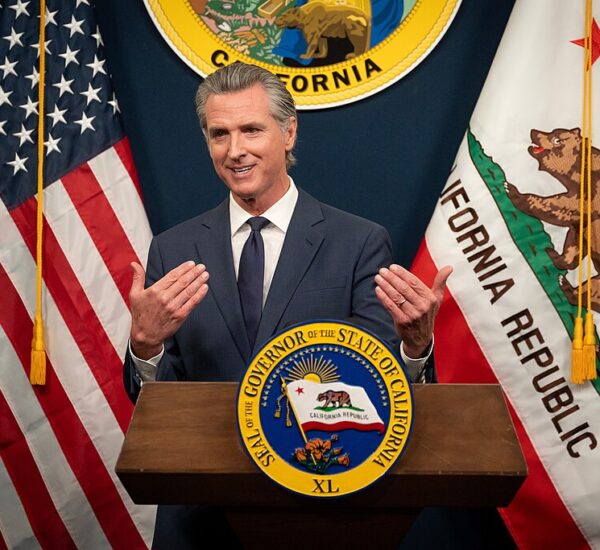America first!
President Donald Trump just shook up Washington and Silicon Valley with a major immigration reform that will have massive consequences for big tech, foreign workers, and the U.S. job market.
On Friday, President Trump signed a historic proclamation placing a $100,000 annual fee on every new H-1B visa, a move aimed at stopping corporations from replacing American workers with cheaper foreign labor.
This decision has ignited intense backlash from global corporations, Wall Street banks, and even foreign governments—while millions of hardworking Americans are cheering it as a long-overdue victory.
Why Trump Took This Bold Step
For decades, big tech companies like Amazon, Google, and Microsoft have been accused of importing low-cost labor from overseas to replace U.S. workers, especially in the technology and engineering sectors.
Commerce Secretary Howard Lutnick explained the reasoning behind the move:
“No longer will these massive corporations train foreign workers to take American jobs. They’ll have to pay the government $100,000 per visa, and then pay the employee’s salary. It’s simply not economical anymore.”
Lutnick confirmed that major corporations have already agreed to comply with the new policy.
A White House official added that the fee only applies to new H-1B visas and will not affect renewals or current visa holders, easing concerns for those already in the U.S.
Introducing the Trump ‘Gold Card’
In addition to the visa crackdown, Trump announced a new high-value immigration pathway called the “Gold Card.”
This exclusive program is designed for wealthy individuals and businesses willing to invest heavily in America:
- Individual Gold Card – $1 million for a direct pathway to U.S. citizenship.
- Corporate Gold Card – $2 million for businesses to sponsor foreign employees.
- Sponsorships can be transferred between workers without paying extra fees.
But the most prestigious option is the “Trump Platinum Card,” which costs $5 million and allows holders to stay in the U.S. for up to 270 days without being taxed on non-U.S. income.
This system is designed to attract major foreign investment while protecting U.S. workers from being undercut by cheap labor programs.
The Numbers Tell the Story
The H-1B visa program has ballooned in recent decades, taking over large portions of the U.S. tech industry.
- In 2003, about 32% of IT workers were on H-1B visas.
- Today, that number has skyrocketed to over 65%, according to the White House.
Meanwhile, unemployment among American graduates is rising:
- 6.1% for computer science graduates.
- 7.5% for computer engineering graduates.
White House officials warned that the program is discouraging young Americans from pursuing STEM careers, which threatens U.S. national security by making America dependent on foreign workers in critical industries.
“President Trump promised to put American workers first,” said White House spokesperson Taylor Rogers. “This action stops companies from abusing the system and gives honest businesses a clear and fair process to hire truly skilled workers when needed.”
Immediate Corporate Fallout
The move sent shockwaves through Silicon Valley and Wall Street:
- JPMorgan Chase instructed its H-1B workers not to travel internationally until new government guidelines are issued.
- Amazon issued similar warnings, urging foreign visa holders to stay inside the U.S., and advising spouses on H-4 visas to return immediately if they are overseas.
These internal memos show just how seriously corporations are taking Trump’s crackdown.
International Backlash
The Indian government, whose tech sector heavily relies on H-1B visas, issued a statement of concern:
“Skilled talent exchanges have contributed enormously to technology development and economic growth in both the U.S. and India,” the statement read, warning that the new rules could strain relations between the two countries.
Indian tech giants are bracing for major disruptions as the U.S. tightens its immigration policies.
Global Elites Sound the Alarm
Not everyone is cheering Trump’s move. Some corporate leaders and venture capitalists are worried about losing access to foreign talent.
Deedy Das, a partner at Menlo Ventures, posted on X (formerly Twitter):
“If the U.S. stops attracting the world’s smartest talent, we’ll lose our ability to innovate and grow the economy.”
However, Trump supporters argue that this is fearmongering by global elites, who profit from cheap labor while American workers suffer.
America First: Trump Keeps His Promise
President Trump’s decisive action sends a clear message: American jobs come first.
By imposing steep fees on foreign hiring, Trump is leveling the playing field for U.S. workers and discouraging corporate abuse of the immigration system.
While tech giants and foreign governments may be unhappy, many Americans see this as a long-overdue correction to a system that has been stacked against them for decades.
This move is yet another example of Trump fulfilling his promise to put America First, even when it sparks backlash from global elites.
Key Takeaways
- $100,000 annual fee now required for each new H-1B visa.
- Gold Card and Trump Platinum Card offer premium, high-dollar immigration options.
- Tech companies like Amazon and JPMorgan are scrambling to adapt.
- Indian tech sector faces severe consequences.
- American workers stand to benefit as corporations are forced to prioritize U.S. citizens.
Final Thoughts
This policy shift is one of the most aggressive actions ever taken against corporate abuse of immigration programs.
For years, American workers—especially older workers—have been pushed aside while tech companies shipped in foreign workers for lower wages.
With this bold move, President Trump has once again proven he’s willing to fight for everyday Americans, even if it means taking on the world’s most powerful corporations and governments.






